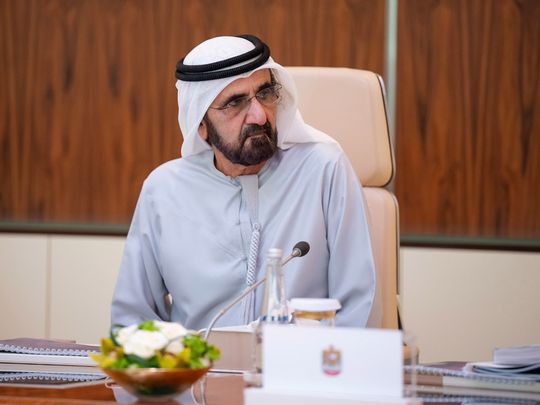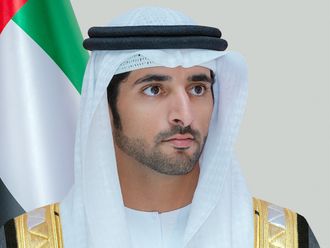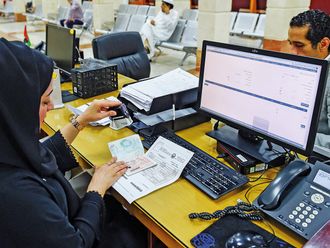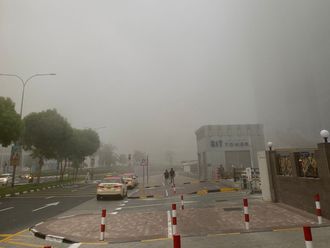
Abu Dhabi: The UAE Cabinet on Monday approved the issuance of a new federal traffic law, which includes amendments to vehicle classifications and integrates modern technologies into road systems to keep pace with global transportation developments.
The new law adapts to the increasing use of self-driving vehicles, electric cars, and various forms of personal transportation, leveraging the technological advancements that define the country’s road network.
The law was endorsed during a Cabinet meeting chaired by His Highness Sheikh Mohammed bin Rashid Al Maktoum, Vice President and Prime Minister of the UAE and Ruler of Dubai, at Qasr Al Watan in Abu Dhabi.
Federal law on traffic
In legislative affairs, the Cabinet approved a federal law on road traffic. The legislation provisions include the classification of vehicles, general obligations of drivers, categories excluded from obtaining driving licenses, conditions for granting licenses, suspension of driving licenses and permits, driving schools, vehicle insurance and inspection, and obligations related to self-driving vehicle.
Sheikh Mohammed said: “During the meeting, we also approved the formation of a working team led by the Ministry of Economy to develop the UAE Chambers of Commerce and Industry. This aims to chart a new path for its role in enhancing the economy, opening markets, building new partnerships with the world, and enabling our local companies to enter global markets. The rapid economic growth in the country requires continuous structural changes to keep pace with developments.”
He added: “We also committed to the principles and recommendations of the International Code for the Protection of Tourists issued by the United Nations World Tourism Organisation. This will be used as a guiding manual for our tourism institutions to implement its principles. The UAE ranks among the top countries globally in safety and leads the region and many countries worldwide in international tourism. International cooperation to provide better services for global tourism is part of our ongoing economic work.”
Sheikh Mohammed said: “During today’s Cabinet meeting, we also tasked the Ministry of Finance with representing the UAE and following up on all its participations in the various working groups within the BRICS financial track, which the UAE recently joined, in cooperation and partnership with the Central Bank of the UAE. Our membership in this important global economic bloc reflects our commitment to working with everyone, building economic bridges with all active economic blocs worldwide, and our commitment to establishing diverse global economic relations.
He added: “In today’s session, we also approved a general framework for sustainable government digital transformation and a charter for the use of artificial intelligence in the country. This charter ensures compliance with the highest standards of safety and privacy, guaranteeing a positive and lasting impact on society. We also approved the issuance of a federal law on traffic and road safety, which includes amendments for vehicle classification and the use of modern technologies on roads, keeping pace with the rapid development of transportation means globally. The new legislation aligns with the expansi
Genome target
During the meeting, the Cabinet reviewed the achievements of the Emirates Genome Council. The Emirati Genome Programme has successfully collected over 600,000 samples from across the country, with efforts underway to expand this number to 1 million.
Over 1,000 medical professionals have been trained to support the programme, ensuring the development of a comprehensive genetic and hereditary disease map.
The initiative aims to enhance the creation of targeted treatments and improve healthcare for future generations.
Sheikh Mohammed encouraged national cooperation with this vital medical programme to foster a healthier society and generations.
Pre-marital screening
In addition, the Cabinet approved the launch of an experimental pre-marital screening programme to cover all genetic and hereditary diseases. The Emirates Genome Council, chaired by Sheikh Khaled bin Mohamed bin Zayed Al Nahyan, Crown Prince of Abu Dhabi and Chairman of the Abu Dhabi Executive Council, has significantly advanced the country’s global scientific standing in genomics, contributing to comprehensive and integrated healthcare for new generations.
Sheikh Mohammed said: “We also committed to the principles and recommendations of the International Code for the Protection of Tourists issued by the United Nations World Tourism Organisation. This will be used as a guiding manual for our tourism institutions to implement its principles. The UAE ranks among the top countries globally in safety and leads the region and many countries worldwide in international tourism. International cooperation to provide better services for global tourism is part of our ongoing economic work.”
He added: “During today’s Cabinet meeting, we also tasked the Ministry of Finance with representing the UAE and following up on all its participations in the various working groups within the BRICS financial track, which the UAE recently joined, in cooperation and partnership with the Central Bank of the UAE. Our membership in this important global economic bloc reflects our commitment to working with everyone, building economic bridges with all active economic blocs worldwide, and our commitment to establishing diverse global economic relations.
Sheikh Mohammed said: “In today’s session, we also approved a general framework for sustainable government digital transformation and a charter for the use of artificial intelligence in the country. This charter ensures compliance with the highest standards of safety and privacy, guaranteeing a positive and lasting impact on society. We also approved the issuance of a federal law on traffic and road safety, which includes amendments for vehicle classification and the use of modern technologies on roads, keeping pace with the rapid development of transportation means globally. The new legislation aligns with the expansion in the use of self-driving vehicles, electric cars, and various types of personal transportation, leveraging the technological advancements that distinguish our road network in the UAE.
Ethical Charter for use of AI
To advance the UAE’s leading position in the digital economy sector, the Cabinet adopted the General Framework for Sustainable Digital Transformation as a guiding policy focusing on integrating sustainability principles into government digital transformation, supporting the UAE’s commitments to combating climate change impacts and promoting a sustainable future. The framework includes launching the paperless government initiative and developing two guiding manuals on the reusing, recycling, or handling of waste related to old digital devices in the federal government.
The Cabinet also approved the Ethical Charter of Development and Use of AI. The Charter comprises 12 principles aimed at preserving the respect of human values and ensuring fair and safe treatment for all members of society. It defines how AI should be used ethically and responsibly. Key principles of the charter include ensuring all AI systems comply with the highest safety standards and developing AI technologies responsibly to be inclusive and accessible to all.
In the same meeting, the Cabinet reviewed the achievements of the government digital transformation, with the UAE leading several significant indicators related to governmental work. The UAE ranked first globally in the government services index and the human-centered government services index, and first globally in public participation and government procurement of advanced technology products. Additionally, the UAE was ranked fourth globally in the digital government transformation maturity index.
Key initiatives and strategies implemented by the government during the past phase include the UAE Digital Government Strategy 2025, the UAE Strategy for Government Services 2021-2025, the UAE National Strategy for Artificial Intelligence 2031, and national cybersecurity policies related to digital transformation.
Guide for partnership projects with private sector
The Cabinet approved policies and procedures regarding the federal government’s rentals, aimed at documenting and standardising criteria and requirements of rental in the federal government and defining the rules and principles to be followed when renting or tenanting facilities, buildings, and spaces, and regulating the relationship between the government and those renting the properties of the Union in all the emirates. The Cabinet also approved the manual of inventory management policies and procedures in the federal government, targeting the documentation and standardization of approved inventory policies and procedures, which is the internal control system within the federal government. The manual also aims to define the responsibilities of employees involved in managing and implementing inventory-related operations.
Additionally, the Cabinet approved the policy for federal government fixed asset management. The policy was developed in line with the best international practices, and aims to document and unify procedures related to the management and control of fixed assets, define the rules and principles to be respected in the various operations related to the fixed asset’s cycle of life, and achieve the optimal use of federal government assets to provide the best services.
During the meeting, the cabinet approved a guide on the partnership projects launched between the UAE Federal Government and the private sector. The guide stipulates the detailed controls and regulations of the joint projects, including the governance of tendering and awarding contracts and their criteria, and the provisions regulating contracts management and the oversight of this type of partnership in the Federal Government.
Federal law on combating communicable diseases
The Cabinet approved a decision to issue a federal law on combating communicable diseases. The new legislation details provisions necessary to establish a legislative framework that responds to the requirements of combating communicable diseases. It details the provisions of communicable diseases’ prevention, monitoring, reporting, and handling according to their nature, severity, and spread of each disease. Additionally, the new law built on the UAE’s expertise accumulated while handling Covid-19 pandemic to protect public health.
Financial restructuring and bankruptcy law
The Cabinet approved a decision on the Executive Regulations of the federal decree-law concerning financial restructuring and bankruptcy. Its provisions include defining the federal and local competent authority to execute the law’s provisions and its implementing resolutions, as well as specifying the format and data to be enclosed in the records of individuals subject to judicial decisions imposing or lifting any restrictions ordered by the court, and controls and procedures of preventive settlement.
Executive Regulations of Maritime Law
A decision on the Executive Regulations of the federal decree-law on maritime law was approved in the meeting. The decision aims to protect the UAE’s maritime interests, marine safety, and marine environment. The Executive Resolution stipulates the controls and procedures for ship licensing in the UAE, competencies of the ship registration office, and administrative penalties applicable in cases of violations of the law’s provisions.
In the meeting, the Council approved legislation on the Unified List of the violations and administrative fines for the violations of measures to combat money laundering and terrorism financing that are subject to the supervision of the Ministry of Justice and the Ministry of Economy. The Unified List includes 41 penalties comprising all violations defined in the legislation to combat money laundering and the financing of terrorism. It also promulgates some provisions on grievance procedures, which gives the complainants flexible periods to provide the court with the necessary documents to make an informed decision about the grievance. The legislation also seeks to enhance standards of transparency and integrity and contributes to improving the efficiency of the collection process and reducing the number of litigations in the UAE courts.
Re-development of the UAE Chambers
The Cabinet approved a decision to form an inter-ministerial team headed by the Ministry of Economy, with the membership of the Ministry of Foreign Affairs, the Ministry of Industry and Advanced Technology, and local governments representatives, aimed at re-developing the Federation of UAE Chambers of Commerce and Industry. The restructuring plan aims to develop a comprehensive national strategy in the matter, to advance and optimise the efforts of the UAE based companies to conquer new international markets, to empower SMEs and startups to prosper globally, to provide a more accurate and pertinent analytical perception of the global markets and trends, and to assess their impact on commercial performance and the economy.
Cross-border licensing of financial products
The Cabinet approved a decision to adopt the regulatory framework for cross-border licensing of financial products between market regulators in the Gulf Cooperation Council (GCC) countries. The Cabinet empowered the Board of Directors of the Securities and Commodities Authority to approve the cross-border licensing regulations to be agreed upon by the regulators after the regulatory framework comes into effect. Cross-border licensing should be a big leap toward advancing collaboration between the GCC countries, and establishing ease of investing and making transactions for GCC nationals and residents.
Reconstitution of the Board of Directors of Etihad Rail
The Cabinet approved the reconstitution of the Board of Directors of Etihad Rail for three years, chaired by Sheikh Theyab bin Mohamed bin Zayed Al Nahyan. The Cabinet also approved the reconstitution of the UAE Circular Economy Council, chaired by Abdullah bin Touq, Minister of Economy, and the UAE Youth Council for a renewable one-year term, chaired by His Excellency Dr. Sultan bin Saif Al Neyadi, Minister of State for Youth Affairs, and the Competition Regulation Committee chaired by the Undersecretary of the Ministry of Economy.
Achievements of the UAE Council for Climate Action
The Cabinet reviewed the achievements of the UAE Council for Climate Action for 2023, including key projects and initiatives undertaken by the council, such as preparing the state’s readiness plan for the 28th Conference of the Parties to the United Nations Framework Convention on Climate Change (COP28), developing the third version of the second Nationally Determined Contributions (NDC) report to be submitted to the UNFCCC, the National Climate Neutrality Strategy 2050, the Low Carbon Development Strategy, and the National Carbon Credit Registry.
International Code for the Protection of Tourists
The Cabinet approved the state’s commitment to the principles and recommendations of the International Code for the Protection of Tourists (ICPT) to be used as a guiding manual, with voluntary application of its principles. The code, prepared by the United Nations World Tourism Organization, aims to restore confidence and accelerate tourism recovery after the pandemic.
The Cabinet approved the Ministry of Finance to represent the state and follow up and coordinate the participation of relevant entities in the state in the BRICS financial track working groups and events, in collaboration with the Central Bank of the UAE.
The Cabinet also approved the state’s hosting of the UAE-Italy bilateral conference in 2024, aimed at opening avenues for scientific cooperation between UAE University and Italian universities in research and applications of advanced materials in the fields of energy, environment, and health, in addition to other applications of advanced materials.
The Cabinet also approved the state’s accession to the International Labour Organization’s (ILO) initiative on the Global Coalition for Social Justice, a voluntary platform aimed at supporting solidarity and enhancing cooperation between member states and international partners to coordinate global development policies.
The Cabinet reviewed the report on the UAE’s participation in the 6th World Forum on Intercultural Dialogue in Baku, Azerbaijan, and the report on attending the 33rd Doha International Book Fair and visiting cultural sites in Doha.
Ratifying international conventions
The Cabinet ratified an agreement between the state government and the government of the Republic of Kazakhstan regarding the implementation of a wind power plant, aimed at providing a legal government framework for UAE companies operating in Kazakhstan to enter project contracts through direct negotiation.
The Cabinet also ratified three agreements between the state government and the government of the Republic of Kenya regarding the extradition of criminals, mutual legal assistance in criminal matters, and the transfer of convicted persons, and ratified a comprehensive economy partnership with the republic of Costa Rica, and signed agreements with Mauritius and Congo Brazzaville on comprehensive economic partnership, and with the Sultanate of Oman on project of railway linking between the two countries.












